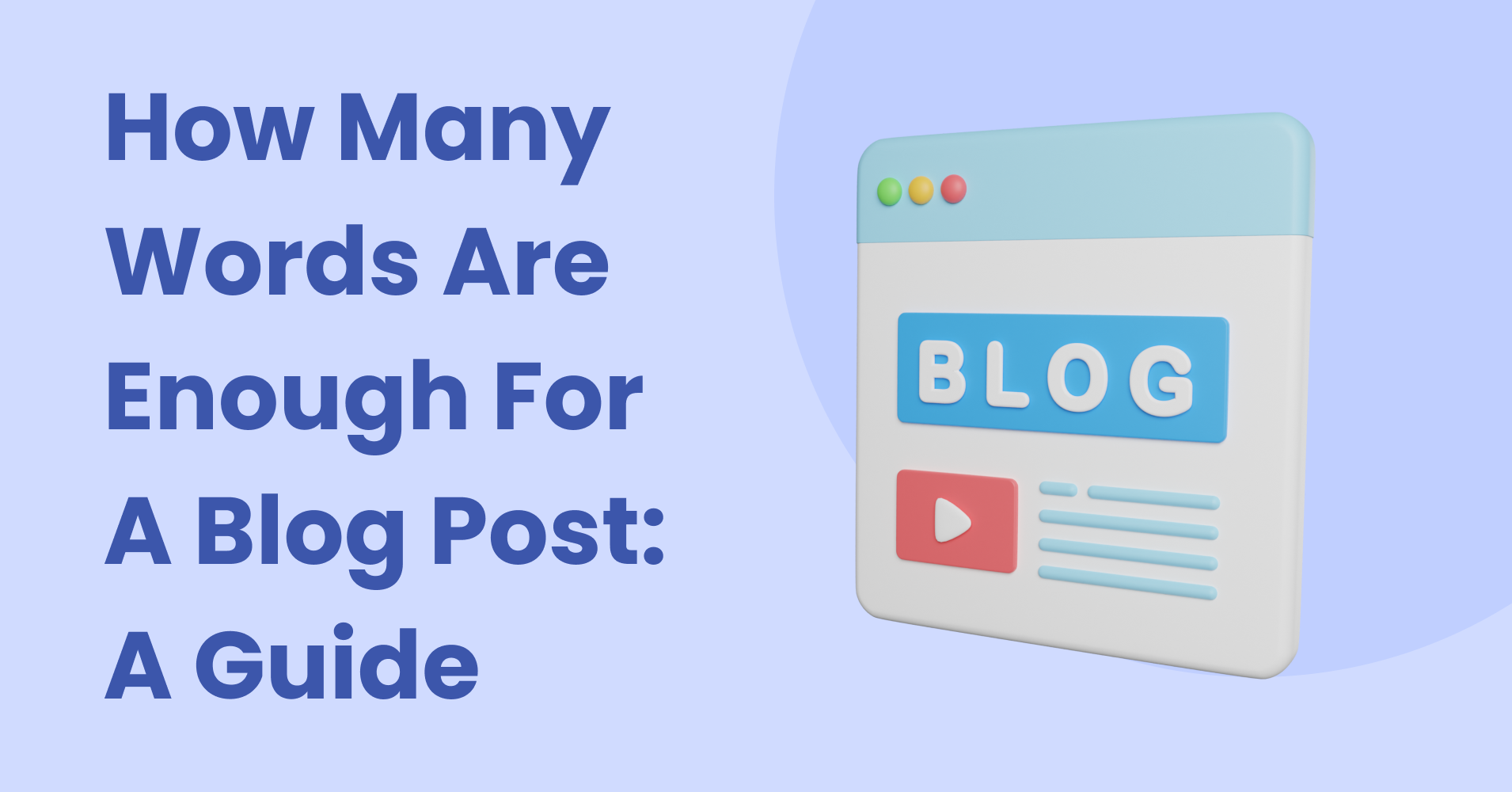No matter your business or budget size, it’s essential that you find ways to maximise your digital marketing, choosing cost-effective ways to promote your company online.
A blog is a fantastic way to do that and start building up loyalty amongst your customers and increasing your organic SEO metrics such as dwell time, site traffic, search engine result pages (SERPs) rankings, and link-building.
However, how long is long enough for a blog post?
How To Find The Ideal Word Count For Your Next Post
Most readers who clicked on this post probably hoped to get a definitive minimum and a maximum number of words.
Unfortunately, that’s not possible. There is no specific word count for blog post content, as there’s no specific number of words for any website content.
Some digital marketing agencies will state, categorically, that Google will only index blog content of a specific word length or longer.
That is, frankly, nonsense.
Google doesn’t have any set word limit for business blog posts: the search engine is more interested in usability and providing readers with relevant, insightful content.
If you check out Google’s guide to how its algorithm works, you’ll notice that nowhere is word count mentioned. Instead, the search engine checks the site for usability, relevance and context, so that it can provide users with the best possible answers for their queries.
Although, it is important to mention that Yoast, an SEO plugin for WordPress and other content management systems (CMS) state that a blog post should be at least 300 words.
HubSpot has suggested through its data insights that writing longer blog posts should be the norm, rather than the exception.
Key Factors To Consider When Writing A Blog Post
With this in mind, how do you work out how long to make your content?
It all depends on the topic and how much information a reader requires. So, if you’re writing an ultimate guide, then your reader is going to expect a complete overview, with pictures and video content as required.
On the other hand, if you’re writing an update on your firm’s new opening hours, then readers aren’t going to want to wade through thousands of words. They want to quickly see when you’re open and be shown where on your site they should go for more information.
So, when you’re writing a blog post, you need to consider:
- How many subheadings and topics you need to provide
- Any target keywords and associated terms that are relevant to your topic
- Who your reader is and how much background information you should provide
- If you need to add any other media such as images or videos
- Whether you can include additional Calls To Action or internal backlinks
- If the content will help you to achieve your digital marketing aims
All of this information will help you to craft a perfect blog post that meets the needs of your target readers. But how do you start?
Keyword research!
It’s important to do some keyword research for every blog post. You don’t have to go overboard with it if you’re really on a budget, just use the free trials that are available to you. Once you have an idea for the sort of blog post you want to create, you should spend a little bit of time figuring out keywords for it.
After that, you move onto…
The Skyscraper Technique!
The Skyscraper Technique means trawling through every article in the top page of Google and reading them, taking notes as you go.
Don’t bother with the second page and onwards. No user is ever going to go that far.
The idea here is that by reading and understanding what other content is out there for the same topic, you can pretty much guarantee that you’re going to write the best version.
When looking at other blog posts around the same topic from your competitors, ask yourself the following questions:
- Is all the information up-to-date?
- Is there anything the writer failed to expand on?
- Are they including photos, videos, sources?
- Is there a way to say what they’ve said in fewer words?
Ask yourself these questions with every blog post and take some notes. When it comes to the time of writing your own version, you should have everything you need to craft a knock-out post that blows the competition away.
While longer blog posts do tend to perform better for many businesses, this doesn’t mean the content should be long for the sake of it.
1000 words with 800 words of fluff = bad. Google’s crawlers WILL spot this and you will be penalised for it.
1000 words with every unnecessary word taken out? That’s a winner. It’ll be better for your customers and that will not go unnoticed by Google.
A Blog Post’s Word Count Becomes Clear While You Plan
Failing to plan is planning to fail.
When you’ve got a blog post you want to work on, make sure to do the necessary research around keywords and competitors’ output for the same topic.
That way, the writing will come much easier, because you’ve done the necessary research. Scoping out the competition is fun! And the best part is, you get to see that competition in real time. There’s nothing like the rush of moving up a few results on Google for your chosen keywords and realising you’ve knocked a direct competitor off their perch.
Think of it as a microcosm of you securing a greater amount of market share.
Treat your blog posts right, and they’ll do the same for your business.
PS – You can outsource the blog creation process. And since you’re already here, you might as well see what we can do for you.





